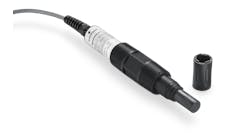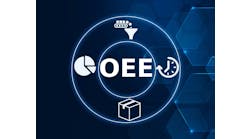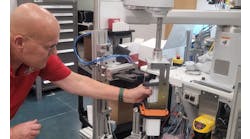Engineers Without Borders launches refrigeration challenge and other projects
Just like many of its supporters worldwide, I've long been a fan of Médecins Sans Frontières because of its longtime mission to "treat people where the need is greatest," such as war zones and usually poverty-stricken areas with endemic diseases. Consequently, I recently thought it would be cool if other professionals could do the same, and apply their expertise in places where it was desperately needed and make life-saving differences.
Well, I have plenty of bright ideas, but I'm not silly enough to believe I'm the first one that comes up with them. So, as soon as I thought of "process engineers without borders," a quick web search immediately revealed Engineers Without Borders USA. Similar to its unaffiliated medical counterpart, EWB-USA's mission is to "build a better world through engineering projects that empower communities to meet their basic human needs, and equip leaders to solve the world’s most pressing challenges," while its vision is "a world in which every community has the capacity to sustainably meet their basic human needs."
EWB-USA reports it was founded two years after Dr. Bernard Amadei, civil engineering professor, University of Colorado Boulder, visited San Pablo, Belize, to assess its water supply, where he learned the jungle community of 950 Mayan Indians lacked clean water and sanitation infrastructure, and that most of its didn't attend school because they had to collect water from miles away.
While San Pablo had the natural resources and its residents were motivated to build a reliable water supply system, they lacked the technical skills to design a lasting solution. Amadei consulted with colleagues, and returned later with a prototype and 14 students to implement their plan. The team installed a clean water system supplied and powered by a waterfall a quarter-mile from the village.
Since this first project, EWB-USA has grown until it now has 13,800 members, almost 300 chapters across the U.S., 707 projects underway in 2018, and is working in 44 countries. It's areas of expertise include disaster response, agriculture, infrastructure, energy, climate resiliency, and water, sanitation and hygiene. However, like most humanitarian organizations, I'm sure it can always use more volunteers and support.
Because long-term sustainability is central to its efforts, EWB-USA stresses its engineering expertise must be part of a partnership with communities seeking its services. As a result, it works with them to identify and implement appropriate solutions they can maintain for years, and is establishing country offices to assist sustainability efforts. Plus, because education is a two-way street in the field, volunteers, community members and other local partners share knowledge and best practices throughout a project to ensure that it's sustainable.
More recently, EWB-USA reported on Sept. 25 that two members of its Energy Standing Content Committee (ESCC), Larry Bentley and F. Andrew Dowdy, are seeking help to solve the problem of refrigeration for off-grid communities in developing countries. As a result, they and EWB-USA have launched its first international competition, “The Chill Challenge,” which is open to just about anyone, including backyard inventors, colleges and companies, to help provide refrigeration to the hundreds of millions of people who get their power from off-grid energy systems.
Bentley and Dowdy estimate that approximately 1.1 billion of the world’s poorest people live entirely without access to electricity, and another 1 billion have only weak, unreliable access to the grid. However, while distributed, clean energy from solar home systems and mini-grids can provide access to energy to more people, and are cheaper than extending existing grids, off-grid electricity is still more costly per kilowatt-hour, and refrigeration can hog power than all other appliances combined
Consequently, participants in the Chill Challenge will develop affordable, energy-efficient refrigerators and icemakers to off-grid communities in developing countries. EWB-USA intends to award grants of $25,000-50,000 to as many as 10 teams to develop proof of concept prototypes of off-grid refrigeration solutions.
This sounds like an interesting problem to me, especially given all the Industrial Internet of Things (IIoT) and other digitalized devices becoming available. I know many process control engineers spend much of their time pursuing efficiency, optimization and small-percentage performance improvements. Here's a chance to make all the difference.






